10 Energising Herbal Teas & Their Benefits
For years now, herbal teas have been used for their healing properties and health benefits. The major difference between herbal tea and other types of tea is caffeine. Herbal tea like kit maté does not contain real tea leaves (Camellia sinensis).. Whether it is Ayurveda in India, Chinese traditional medicines, ancient Egyptian practices, or British tea culture, the use of herbal teas has been quite popular in many cultures. They are not only used for treating various ailments but many cultures believe that drinking or consuming herbal tea facilitates a spiritual benefit, connecting the heart and the mind.
The use of herbal teas is becoming increasingly popular as a complementary treatment with other psychiatric treatment plans as well. It can help offer some relief from periodic stress or anxiety, while others might be better utilized as a normal complementary treatment for a hidden condition.
Different herbs used to make herbal teas possess different healing properties and when used in correct proportions and combinations they have several health benefits.
This article will discuss the different options to consider when looking for the best herbal teas to try. Read on to learn more.
Herbal Teas To Try in 2023
Below are the energising teas to try in 2021 and their underlying benefits:
Chamomile Tea
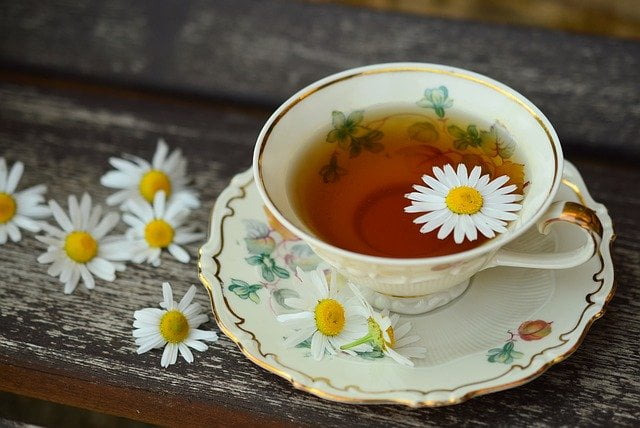
It comes from the plant family of matricaria chamomilla or chamaemelum nobile. Chamomile tea is most-known for its soothing properties. It helps calm the symptoms of anxiety and is found effective in reducing stress in an individual. It also be used to fight insomnia as it aids sleep.
In a study of women with postpartum who were experiencing sleep problems, it was found that consuming chamomile tea for 2 weeks led to improvement in sleep quality and lessen symptoms of depression. Nursing writing services experts claim that chamomile tea is especially useful for those students who have trouble sleeping.
Chamomile tea may also help in relieving high blood lipid, high blood sugar, and insulin levels, as well as soothing premenstrual symptoms.
Passionflower Tea
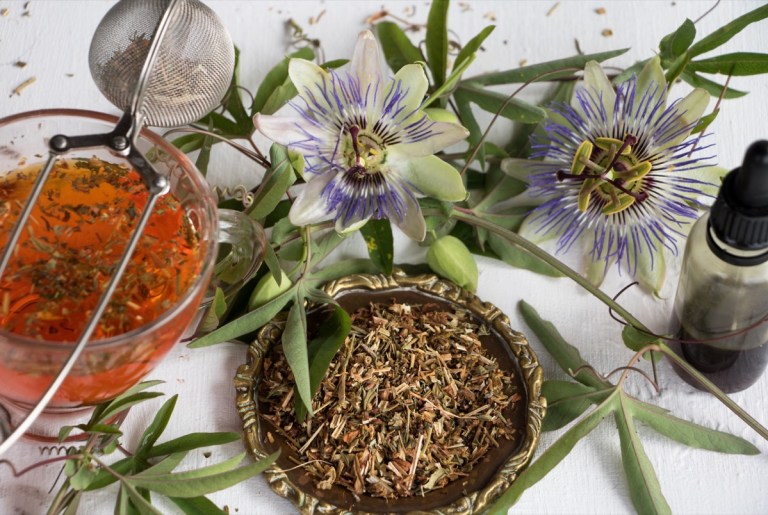
Passionflower is a vine of flowering kind that is believed to aid in fighting insomnia, symptoms of anxiety, hot flashes, pain, etc.
Studies show that passionflower helps in increasing gamma-aminobutyric acid (GABA), a neurotransmitter in the brain, responsible for reducing activity in the central nervous system. It results in enhanced mood, improved sleep, relaxation and even relieving pain.
It is also found to be effective in treating symptoms of a generalized anxiety disorder (GAD), with lesser side effects as compared to benzodiazepines.
For results, you can take a piping hot passionflower tea before going to bed. It will act as a natural mild sedative.
Sage Tea
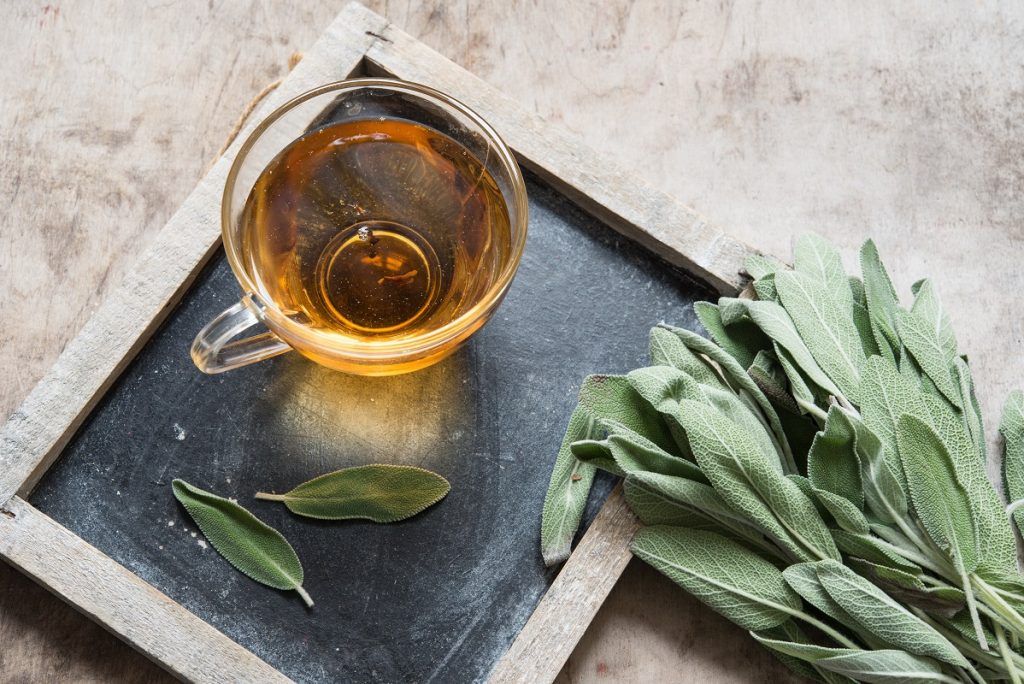
Salvia officinalis or sage belongs to the mint family of ‘Lamiaceae’. It an aromatic infusion made from the leaves of sage. It contains various anti-inflammatory and antioxidant compounds like camphor, carnosol, and rosmarinic acid.
Studies suggest that sage is beneficial for improving mood, cognitive function and memory. It is also found to have been healthy for heart and colon.
Lavender Tea
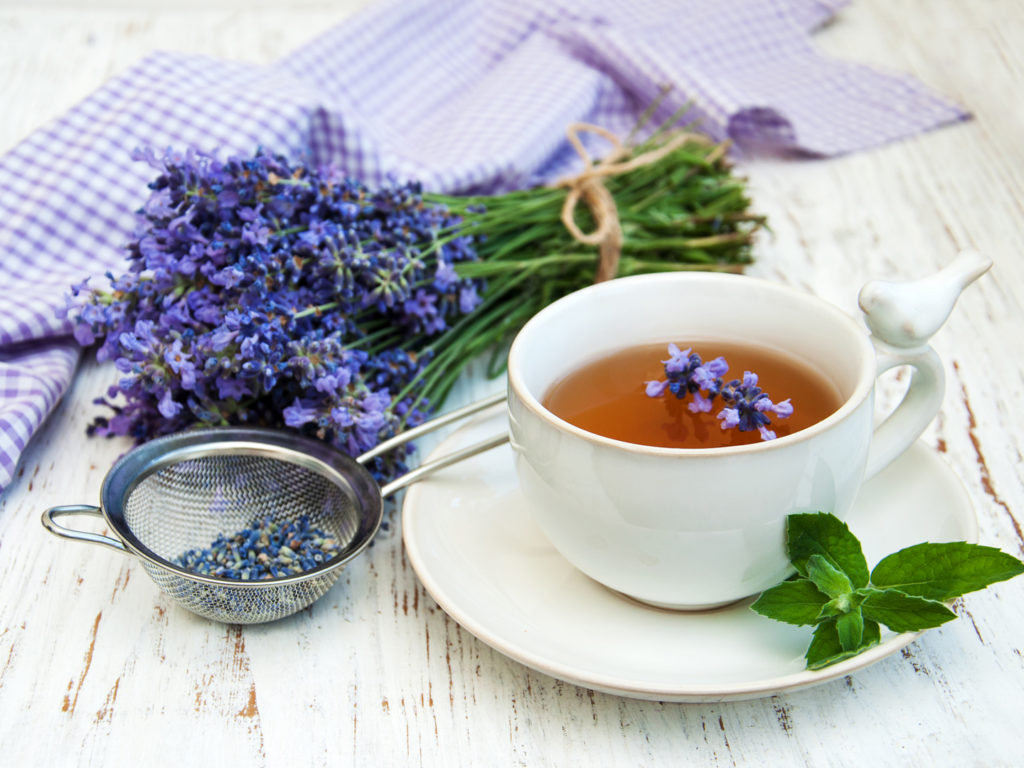
Lavender or lavendula officinalis also comes from the family of Lamiaceae. It can be effective in improving mood disorders and in treating insomnia as it possesses mild sedative properties.
It is another herbal tea that is known for its soothing properties and helps treat the symptoms of generalized anxiety disorder and even menstrual cramping.
Hibiscus Tea
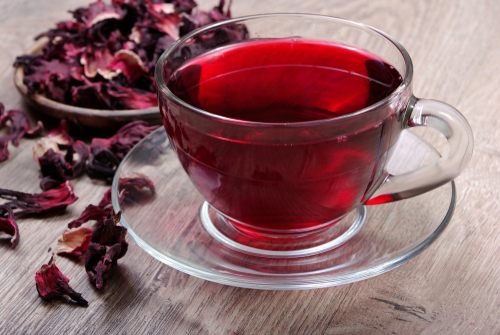
Hibiscus tea is an infusion made from crimson sepals of the hibiscus sabdariffa flower. It can be consumed either hot or cold.
It helps in lowering high blood pressure and oxidative stress. It must not be taken if you are on some diuretic medicines, as the two may interact and be harmful to your health or along with aspirin, as it shortens the effects of aspirin and should be taken 3 to 4 hours apart.
Ginger Tea
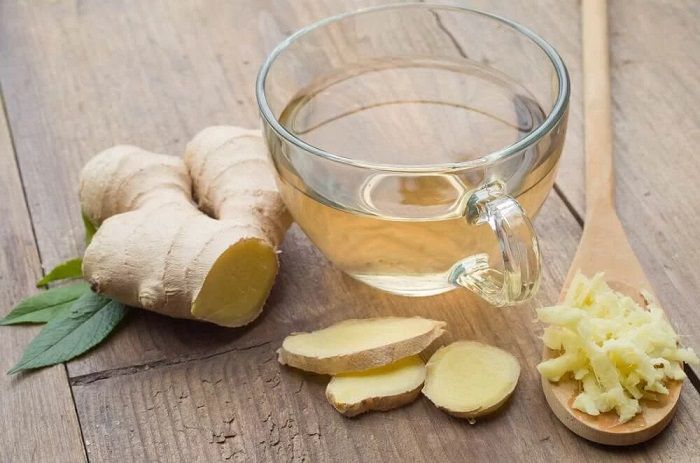
Ginger is one of the most commonly used spices in the kitchen. It is best known for its anti-inflammatory and disease-fighting antioxidant properties.
It helps stimulate the immune system and used as a remedy to cure nausea, and prevent stomach ulcers or constipation. It may also help in relieving menstrual cramping.
Two studies were found that deemed ginger to be as effective as non-steroidal anti-inflammatory medicines.
Some studies are investigating the benefits of ginger in treating diabetes.
Peppermint Tea
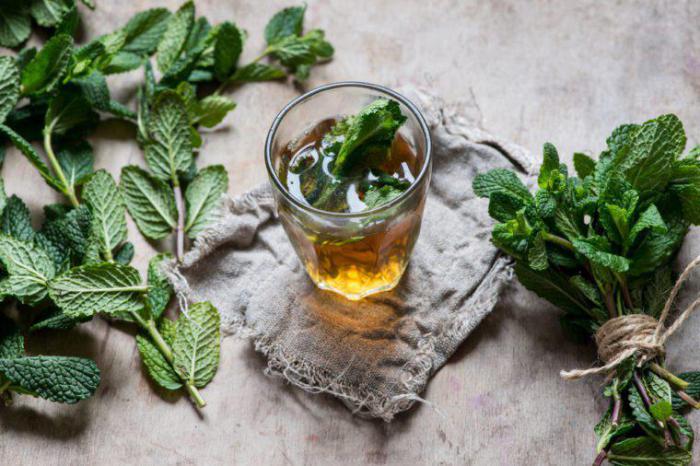
Peppermint is often used as a mouth freshener. But it’s use is not just limited to this. Peppermint contains various essential oils like menthone, limonene and menthol which helps in reducing stress, tension and even cure all kinds of headaches.
It also acts as a muscle relaxer and pain killer, as it aids blood circulation which in turn helps ease the pain. Its anti-anxiety properties significantly improve metabolic energy and reduce lethargy. Peppermint benefits the human nervous system and also helps treat symptoms of anxiety and depression.
Ashwagandha Tea
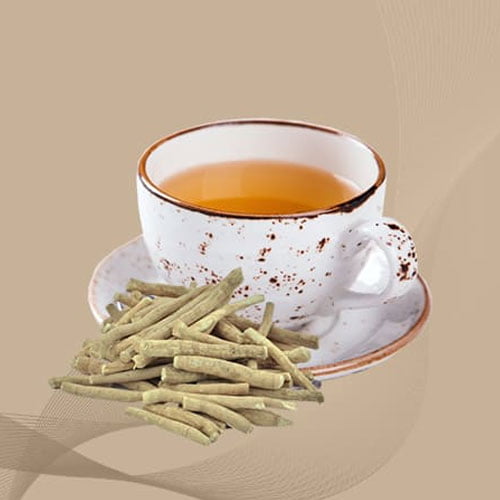
According to Ayurveda, ashwagandha acts as an adaptogen, managing stress and mental health disorders.
It also helps in enhancing sexual health and inhibiting cortisol (stress hormones). It is profoundly effective in people combating stress and various other mental health issues. Ashwagandha is also beneficial for the treatment of insomnia.
Rose Hip Tea
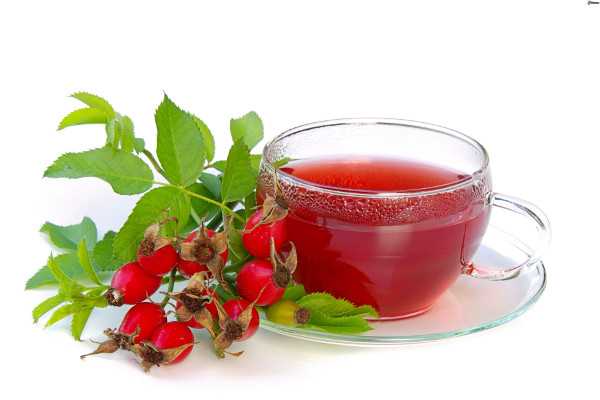
It is made from the extracts of the pseudo-fruit of the rose plant.
It is also known as “the elixir of youth” It is rich in vitamin C and antioxidants which helps fighting skin aging and reducing belly fat. It’s plant components which have anti-inflammatory properties help fight inflammation and arthritis pain.
Green Tea
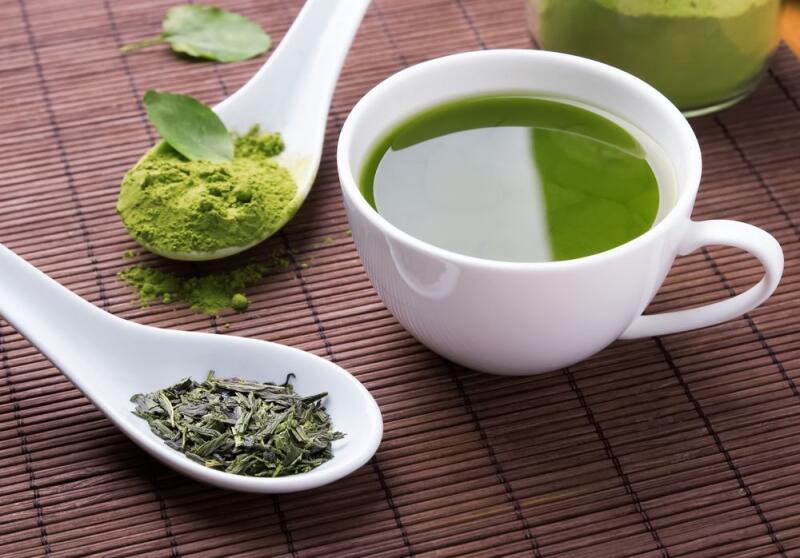
Green tea is the most popular tea among herbal teas. It is preferred by people for its various health benefits as it is very rich in antioxidants. Its benefits include fat loss, lowered risk of cardiovascular disease and improved brain function.
Studies also suggest that green tea helps reduce the problem of bad breath and even reduce the risk of type 2 diabetes. It’s also believed to help protect the skin from potential damage caused by direct sunlight and pollution. Since green tea contains high levels of antioxidants, it may reduce the risk of cancer by protecting the cells from damage that can lead to the said illness.
The benefits of herbal teas are various but if you are planning to add a specific herbal tea to your routine, one thing that you must keep in mind is that all herbal teas may not suit you. It is suggested that you consult your doctor for the same and check for any allergies or risk of interaction with your current medication.
Other Herbal Teas To Try
Aside from the ones mentioned above, there are also other teas you may want to consider for your overall well-being. One of the popular ones is the Turkey tail tea from a reliable provider like Mushroom Revival. It’s a type of infusion made from a unique variety of mushrooms known as the turkey tail.
This mushroom, scientifically named Trametes versicolor, is renowned for its distinct fan-like shape, striking colours, and pattern that resembles the plumage of a wild turkey, hence its common name.
One of the most fascinating aspects of this mushroom is its rich concentration of immune-boosting compounds. It contains polysaccharopeptides, including Polysaccharide-K (PSK) and Polysaccharide-P (PSP), which have been studied for their potential benefits in boosting the immune system and supporting overall health.
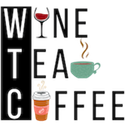
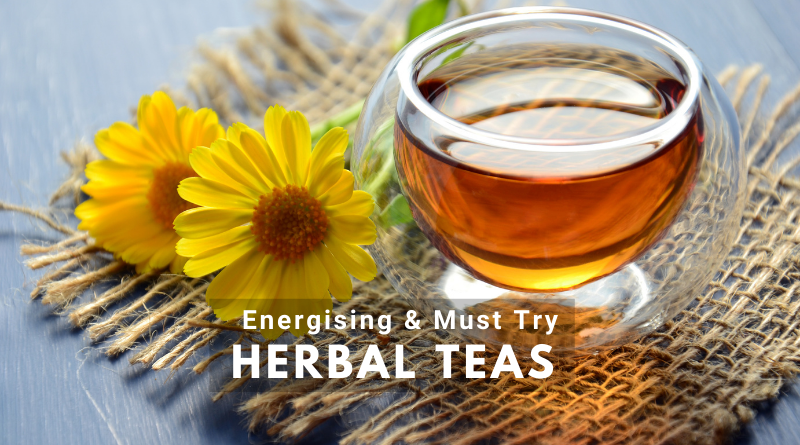
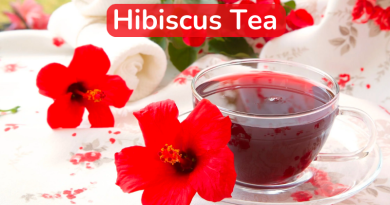


Pingback: Make Women’s Fitness Plan With Public Health And Nutrition | HairandBeautyTips